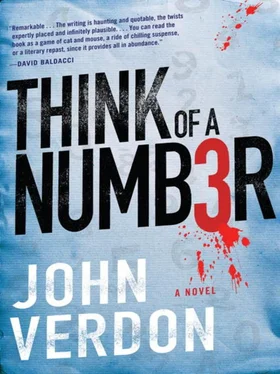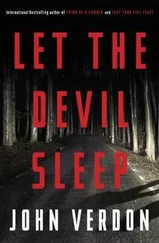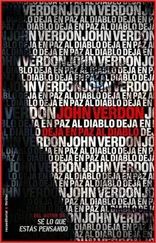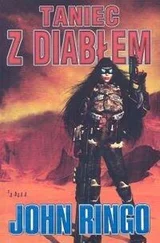After a long three seconds, Hardwick continued in a less combative tone. “Nine goddamn years. And all of a sudden you pop up out of nowhere, right in the middle of what might be the most sensational murder case in New York State since you fished the bottom half of Mrs. Piggert out of the river. That’s some goddamn coincidence.”
“Actually, it was the top half, Jack.”
After a short silence, the phone exploded with the long braying laugh that was a Hardwick trademark.
“Ah!” he cried, out of breath at the end of the bray. “Davey, Davey, Davey, always a stickler for details.”
Gurney cleared his throat. “Can you tell me how Mark Mellery died?”
Hardwick hesitated, caught in the awkward space between relationship and regulation where cops lived much of their lives and got most of their ulcers. He opted for the full truth-not because it was required (Gurney had no official standing in the case and was entitled to no information at all) but because it had a harsh edge. “Someone cut his throat with a broken bottle.”
Gurney grunted as though he’d been punched in the heart. This first reaction, however, was quickly replaced by something more professional. Hardwick’s answer had jarred into position one of the loose puzzle pieces in Gurney’s mind.
“Was it by chance a whiskey bottle?”
“How the hell did you know that?” Hardwick’s tone traveled in seven words from amazement to accusation.
“It’s a long story. Would you like me to drop by?”
“I think you better.”
The sun, which that morning was visible as a cool disk behind a gray wash of winter cloud cover, was now entirely obscured by a lumpy, leaden sky. The shadowless light seemed ominous-the face of a cold universe, uncaring as ice.
Finding this train of thought embarrassingly fanciful, Gurney put it aside as he brought his car to a stop behind the line of police vehicles parked jaggedly on the snow-covered roadside in front of the Mellery Institute for Spiritual Renewal. Most bore the blue and yellow New York State Police insignia, including a tech van from the regional forensics lab. Two were white sheriff’s department cars, and two were green Peony police cruisers. Mellery’s crack about its sounding like the name of a gay cabaret act came to mind, along with the expression he’d had on his face when he said it.
The aster beds, crowded between the cars and the stone wall, had been reduced by the hardening winter weather to tangled masses of brown stalks sporting weird cotton-ball blossoms of snow. He got out of the car and headed for the entrance. A crisply uniformed trooper with a paramilitary scowl stood at the open gate. He was probably a year or two younger, Gurney noted with an odd feeling, than his own son.
“Can I help you, sir?”
The words were polite, but the look wasn’t.
“My name is Gurney. I’m here to see Jack Hardwick.”
The young man blinked twice, once at the sound of each name. His expression suggested that at least one of them was giving him acid reflux.
“Hold on a minute,” he said, removing a walkie-talkie from his belt. “You need to be escorted.”
Three minutes later the escort arrived-a BCI investigator who looked like he was trying to look like Tom Cruise. Despite the winter chill, he wore only a black windbreaker hanging open over a black T-shirt and jeans. Knowing the strictness of the state police dress code, Gurney figured attire that informal would mean he’d been called directly to the scene from an off-duty or undercover activity. The edge of a nine-millimeter Glock in a matte black shoulder holster visible under the windbreaker seemed as much a statement of attitude as a tool of the trade.
“Detective Gurney?”
“Retired,” said Gurney, as though appending an asterisk.
“Yeah?” said Tom Cruise without interest. “That must be nice. Follow me.”
As Gurney followed his leader along the path around the main building toward the residence behind it, he was struck by the difference a three-inch snowfall had made in the appearance of the place. It had created a simplified canvas, removing extraneous details. Walking into the minimalism of the white landscape was like stepping onto a newly created planet-a thought at absurd variance with the messy reality at hand. They rounded the old Georgian house where Mellery had lived and stopped short at the edge of the snow-covered patio where he’d died.
The location of his death was obvious. The snow still bore the impression of a body, and spread out around the head-and-shoulders area of that impression was an enormous bloodstain. Gurney had seen that shocking red and white contrast before. The indelible memory was from Christmas morning of his rookie year on the job. An alcoholic cop whose wife had locked him out of their house shot himself in the heart, sitting on a snowbank.
Gurney forced the old image out of his mind and focused his keen professional gaze on the scene before him.
A prints specialist was kneeling by a row of footprints in the snow next to the main bloodstain, spraying them with something. From where he was standing, Gurney couldn’t see the label on the can, but he guessed it was snow-print wax, a chemical used to stabilize snow prints sufficiently for the application of a dental casting compound. Prints in snow were extremely fragile, but when treated with care they provided an extraordinary level of detail. Although he’d witnessed the process often enough before, he couldn’t help but admire the specialist’s steady hand and intense concentration.
Yellow police tape had been strung in an irregular polygon around most of the patio, including the back door of the house. Corridors of the same tape had been established on opposite sides of the patio-to enclose and preserve the arrival and departure routes of a distinct set of footprints that came from the direction of the large barn beside the house, proceeded to the area of the bloodstain, then headed away from the patio over the snow-blanketed lawn toward the woods.
The back door of the house was open. A member of the crime-scene team was standing in the doorway studying the patio from the perspective of the house. Gurney knew exactly what the man was doing. When you were at a crime scene, you tended to spend a lot of time just trying to absorb the feel of it-often trying to see it as the victim might have seen it in his final moments. There were clear, well-understood rules for locating and collecting evidence-blood, weapons, fingerprints, footprints, hairs, fibers, paint chips, out-of-place mineral or plant material, and so forth-but there was also a fundamental focus problem. Simply put, you needed to remain open-minded about what had happened, exactly where it had happened, and how it had happened, because if you jumped to conclusions too quickly, it would be easy to miss evidence that didn’t fall within your view of the situation. At the same time, you had to begin developing at least a loose hypothesis that would guide your evidence search. You can make painful mistakes by getting too sure too fast about the apparent crime scenario, but you can also waste a lot of precious time and manpower fine-tooth-combing a square mile of ground looking for God-knows-what.
What good detectives did-what Gurney was sure the detective in the doorway was doing-was a kind of unconscious flipping back and forth between inductive and deductive mind-sets. What do I see here, and what sequence of events do these data points suggest? And, if that scenario is valid, what additional evidence should I be seeing and where should I be looking for it?
The key to the process, Gurney had become convinced through much trial and error of his own, was maintaining the right balance between observation and intuition. The greatest danger to the process was ego. A supervising detective who remains undecided about the possible explanation for crime-scene data might waste some time by not focusing his team’s efforts in a particular direction soon enough, but the guy who knows, and aggressively announces, at first glance exactly what happened in that blood-spattered room and sets everyone to proving he’s right can end up causing very serious problems-wasted time being the least of them.
Читать дальше












